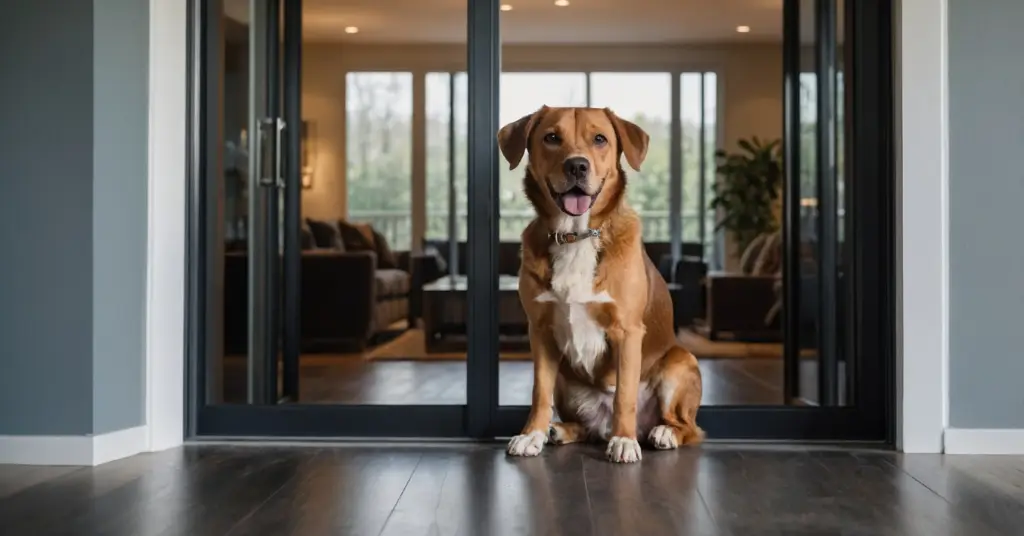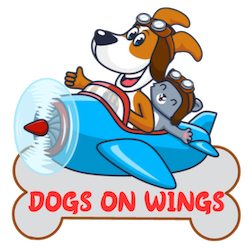Dog snoring is more common than many people realize and can range from something harmless to a sign of health issues. Understanding the causes and knowing how to help your pet is essential to ensuring their well-being and even improving your own quality of sleep.
If you’ve ever found yourself laughing or worrying about the sounds your dog makes while sleeping, know that there are various reasons behind it. Some breeds are more predisposed to snoring, while factors like posture, weight, and even allergies can play a role. But is it always something to be concerned about?
Curious to learn more about dog snoring, its causes, and what to do about it? Keep reading to discover how to better care for your furry friend and ensure quieter nights for both of you.
What Is Dog Snoring?
Just like in humans, dog snoring occurs when there is a partial obstruction of the airways. This characteristic sound is caused by the vibration of soft tissues in the throat or nose during breathing.
In many cases, dog snoring is a natural occurrence, especially in certain brachycephalic breeds. However, there are situations where snoring may indicate health problems that require attention.
Although snoring may go unnoticed in daily life, it deserves attention, especially if it starts suddenly or is accompanied by other symptoms such as lethargy, coughing, or breathing difficulties.
Why Is My Dog Snoring?

Dog snoring can have different origins, ranging from genetic factors to environmental influences. Below, we explore the most common causes:
1. Anatomy of Brachycephalic Breeds
Breeds like Pugs, French Bulldogs, Shih Tzus, and Boxers are classified as brachycephalic, meaning they have flat faces. This anatomical trait causes their airways to be narrower, increasing the likelihood of dog snoring.
These dogs often have breathing difficulties due to a combination of small nostrils, an elongated soft palate, and a narrow trachea. As a result, snoring is often more intense and frequent in these pets.
2. Obesity
Excess weight is one of the most common causes of dog snoring. When a dog is overweight, the accumulation of fat around the neck and airways can obstruct airflow.
Obese dogs also tend to be less active, worsening the issue. The good news is that this cause can be reversed with changes in diet and exercise routines.
3. Allergies and Environmental Irritants
The environment plays a crucial role in a dog’s well-being. Pollen, dust, cigarette smoke, and even cleaning products can cause allergies or irritate the airways, leading to dog snoring.
Dogs living in polluted environments or frequently exposed to allergens are more prone to developing respiratory issues that increase snoring.
4. Respiratory Infections
Infections like kennel cough, sinusitis, or colds are temporary causes of dog snoring. During these conditions, increased mucus production and airway inflammation can intensify the sound of snoring.
If your dog has a fever, persistent coughing, or loss of appetite along with snoring, it’s essential to consult a veterinarian immediately.
5. Sleeping Position
Even the way your dog sleeps can influence dog snoring. Just like in humans, sleeping on their back can increase the likelihood of snoring, as the tongue and soft tissues tend to partially block the airways.
Should I Worry About Dog Snoring?
Although dog snoring isn’t always a serious issue, there are cases where it could indicate more significant problems. It’s essential to observe the following:
- Constant and loud snoring: When snoring persists despite adjustments in your dog’s environment or routine;
- Difficulty breathing: If your dog seems short of breath or struggles to breathe even when awake;
- Behavioral changes: Excessive fatigue or changes in appetite could signal something beyond simple snoring;
- Additional sounds: Wheezing or choking noises accompanying snoring may point to more severe issues.
If you notice any of these signs, take your pet to the veterinarian for a detailed evaluation.
How to Stop Dog Snoring? Practical Solutions

The good news is that there are many ways to alleviate or reduce dog snoring. Here are some practical tips:
1. Manage Your Pet’s Weight
If dog snoring is due to obesity, adjusting their diet is a crucial step. Reduce treats, provide high-quality food, and incorporate physical activities into their routine.
Besides improving snoring, maintaining a healthy weight contributes to your dog’s overall longevity and well-being.
2. Adjust the Environment
Clean and allergen-free environments can make a big difference. Use vacuum cleaners with HEPA filters, keep the house well-ventilated, and avoid using cleaning products with strong scents.
If your dog spends a lot of time outdoors, ensure they have access to a clean, pollutant-free space.
3. Improve Sleeping Position
Providing a proper and comfortable bed can help reduce dog snoring. Slightly elevated pillows or beds make breathing easier and can minimize snoring.
4. Ensure Adequate Hydration
Dehydration can dry out your dog’s airways, worsening snoring. Make sure they always have access to fresh, clean water.
Treatments and Interventions
When dog snoring is caused by more severe conditions like anatomical obstructions or chronic infections, a veterinarian may recommend specific treatments:
- Corrective surgeries: For brachycephalic breeds, procedures to widen the nostrils or shorten the soft palate are common;
- Medications: Antihistamines or antibiotics may be necessary to treat allergies or infections;
- Humidifiers: For dry environments, a humidifier can relieve symptoms and improve breathing.
Prevention: How to Avoid Dog Snoring
While dog snoring may be unavoidable in some situations, especially in brachycephalic breeds, there are steps you can take to prevent or minimize the problem. Caring for your dog’s overall health and providing a favorable environment are essential.
- Exercise Routine: Dogs need regular physical activity to maintain a healthy weight and strengthen their respiratory systems. Outdoor play, regular walks, and even simple indoor exercises help prevent obesity, one of the leading causes of snoring;
- Balanced Diet: A diet rich in nutrients and tailored to your dog’s size and age is crucial. Choose high-quality food and avoid overindulging with treats, as they can contribute to weight gain and increase the risk of snoring;
- Environmental Hygiene: Keep your dog’s living space clean. Remove dust, accumulated hair, and other allergens that can irritate their airways. Use fragrance-free or pet-safe cleaning products if possible;
- Allergy Control: If dog snoring is linked to allergies, identify the triggers and take steps to eliminate them. Consult a veterinarian to determine the exact cause of the allergy and, if necessary, use appropriate medications for symptom relief;
- Regular Veterinary Visits: Routine check-ups are essential for preventing issues that may cause snoring. Regular exams help identify any health changes early and address them before they worsen.
When to Consult a Veterinarian

Even if dog snoring seems normal, it’s important to know when to seek professional help. Contact a veterinarian if:
- The snoring worsens over time;
- There are frequent episodes of choking or apnea;
- Your dog shows other symptoms, such as persistent coughing, extreme fatigue, or nasal discharge.
The vet may perform detailed tests, such as X-rays or endoscopies, to identify the exact cause. In more severe cases, like airway obstructions or structural issues, surgical intervention may be required.
Understanding Your Dog’s Behavior
Every dog has its unique quirks, and knowing your pet’s habits and behaviors is key to identifying any changes. Dog snoring, even when harmless, can indicate that something has shifted in their routine or health.
Observing your dog’s nighttime behavior also strengthens your bond. Watching their sounds, movements, and even sleeping positions can help you better understand their needs and provide a healthier and more comfortable life.
Living with Dog Snoring
Having a dog that snores doesn’t have to be a problem. Most of the time, dog snoring is just another funny and unique trait of your furry friend. However, don’t ignore signs that might indicate something more serious.
By adjusting the environment, providing a balanced diet, and paying attention to your pet’s behavior, you ensure they are comfortable and healthy. Remember, your dog’s snoring could be a sign they need a little extra care and attention.
If you enjoyed these tips and want to learn more about caring for your dog, keep following our content. Here, you’ll always find useful information to improve the life of your four-legged friend!
